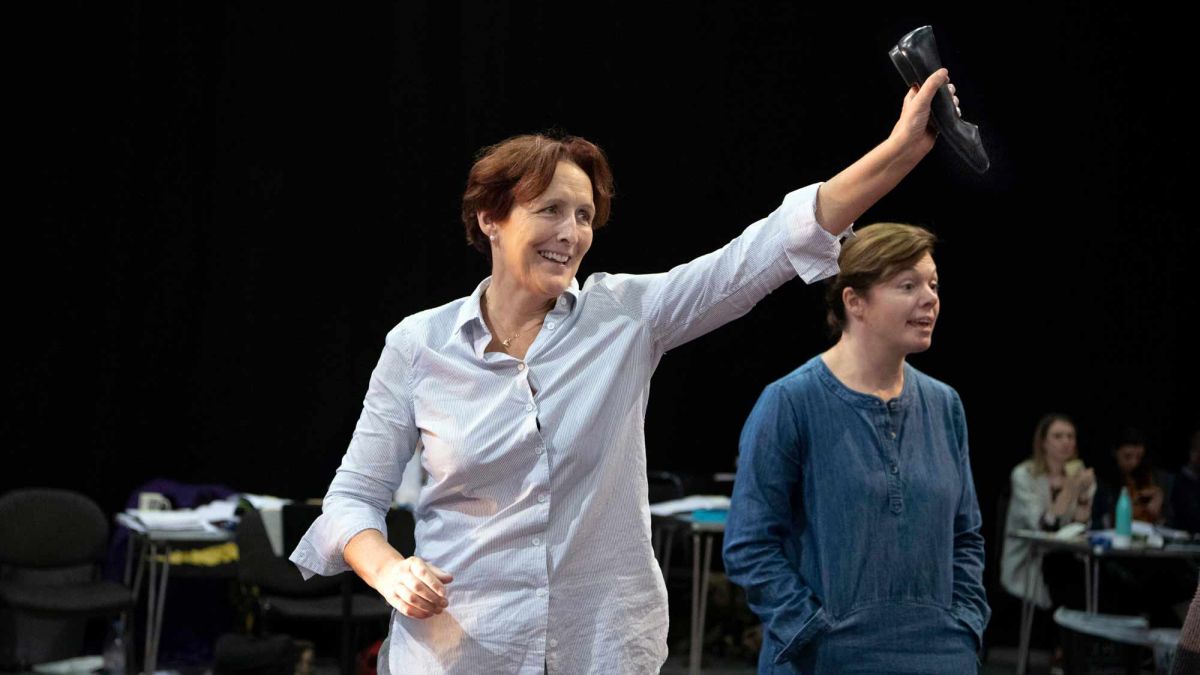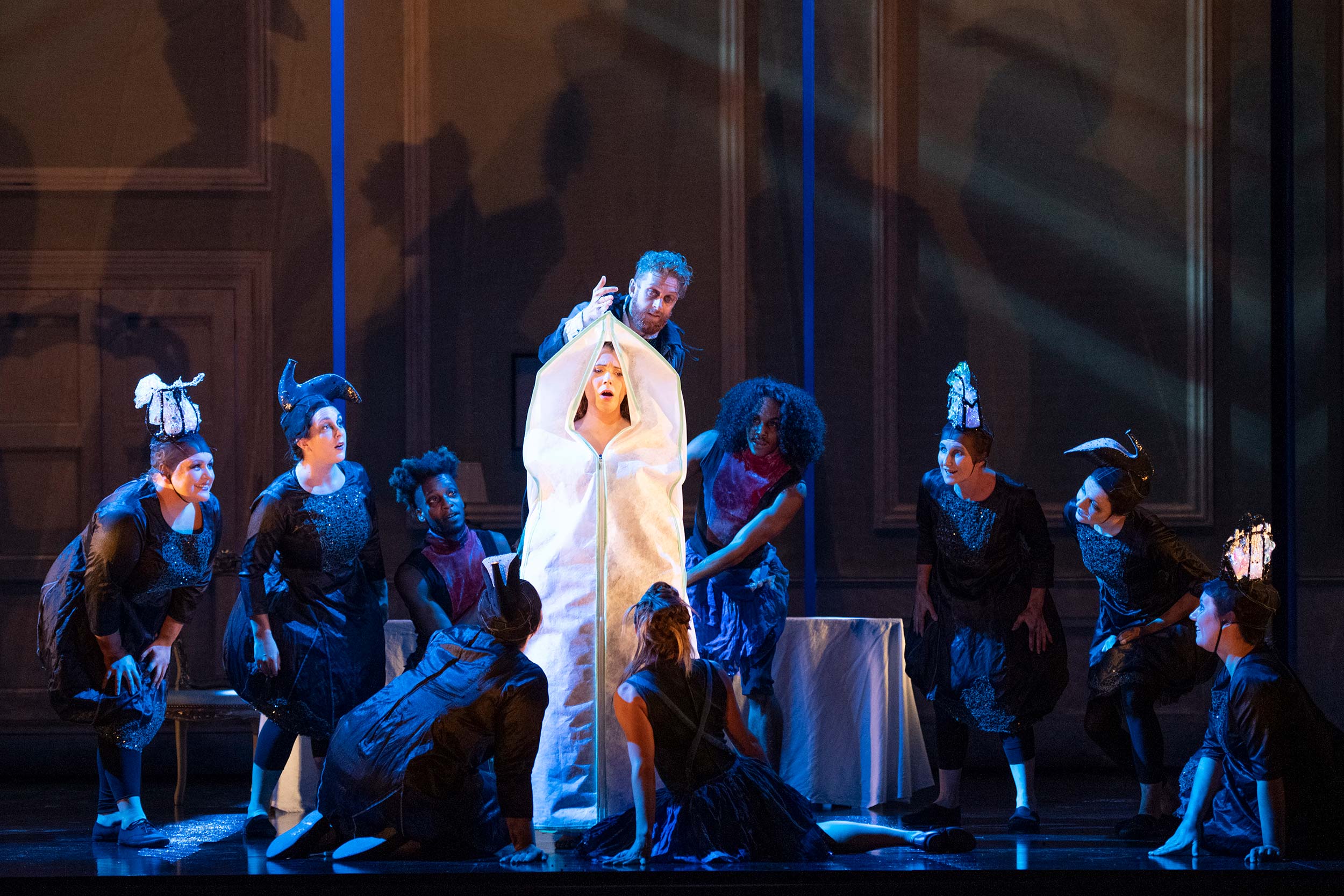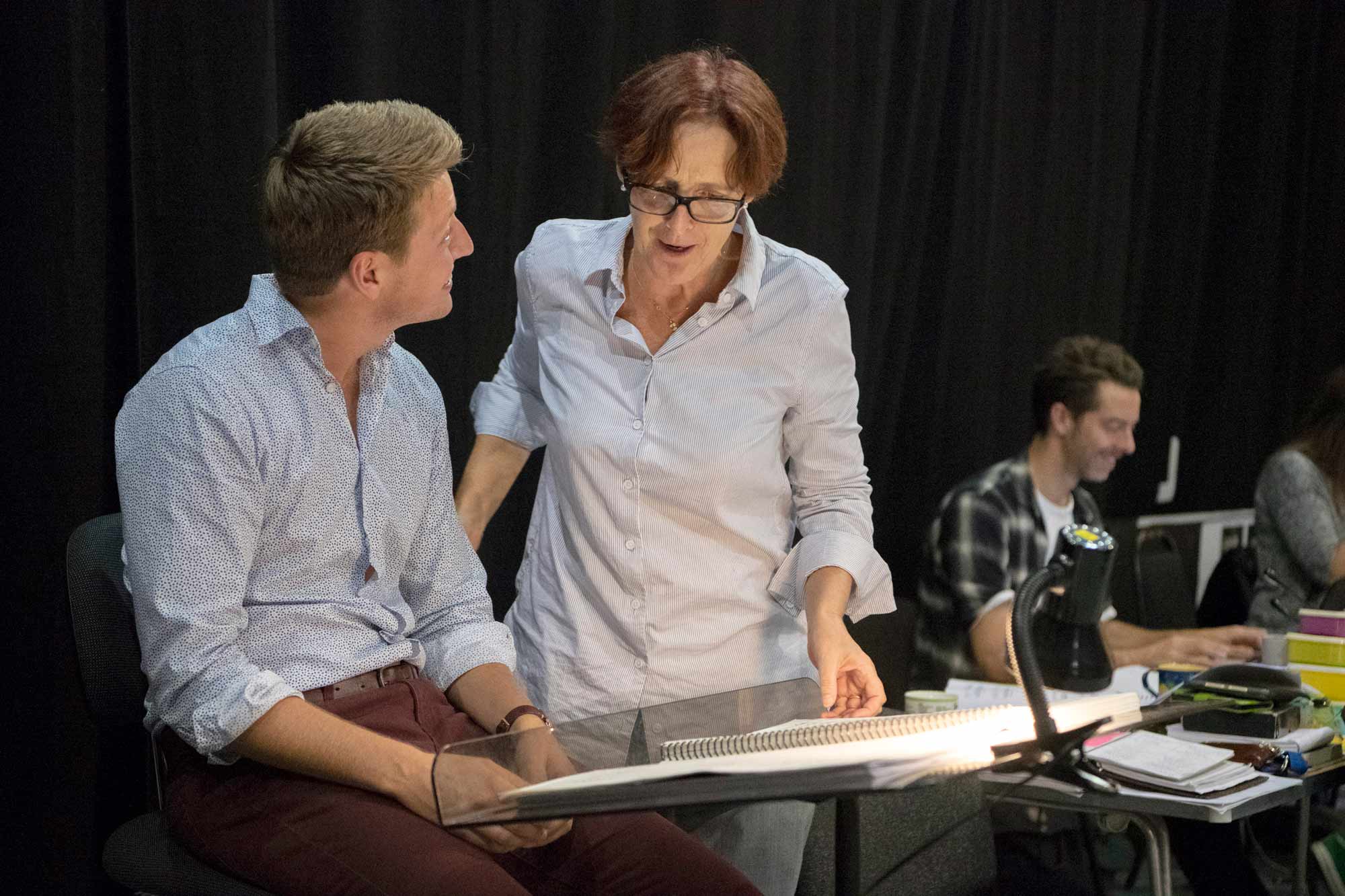
Directed to go to the ball
Mon 5 Nov 2018Why do you think fairy tales continue to hold so much fascination for us?
They are stories that have lost almost all of their detail and you’re left with just the essence. Fundamentally, I think fairy stories help explain the mystery of growing up to children and help adults remember the mystery of what it was to be a child. They work for both generations, and the transition between them. Even though the drawings in the book often seem old fashioned, which makes them slightly alien, they are actually about all of us, all of the time.
Everyone knows the Cinderella story but they may not be familiar with this operatic version by the French composer Jules Massenet. Are there any differences in this version?
He actually tells a straight-forward story and the music is full of brio and full of the excitement, and indeed some of the experiment, of what it is to be in the fairy world. The fairy world is a challenge to conjure because we are just humans, so we have to try to create it out of our dreams. Massenet does that beautifully through his music. Our job is to make the story detailed so that a modern audience can enjoy identifying with the people in it.

Photo by Richard Hubert Smith
Can the audience expect any further surprises in your take on the story?
Theatre should be always full of some surprises. It’s full of magic and we’ve had great fun trying to find that magic or make things happen in an exciting way. There is also the fact that it features two female singers (both Cinderella and Prince Charming are written to be performed by women), which in 1892 would have been an absolutely formulaic way of avoiding anything to do with the consequences of having a male and female singing with such passion. It’s a way of toning down the genders and making things unreal. Now perhaps one sees that two women leading an evening carries quite a different sensibility. We haven’t fought the female version of the Prince at all; we haven’t assumed the audience would think it was a boy, but rather that Cendrillon invents this sort of female boy for herself. The story seems to emerge, as we are working on it, as much more about Cendrillon becoming a person in her own right, who may go on to love again. So it’s not the end of the story, no more than it is the end of the story for a woman to fall in love now. It isn’t happy ever after; it’s happy for today.
This production could be a good first opera for people since they will certainly know the story. What was your own introduction to opera?
My own introduction was quite by chance. It was my confirmation, aged nine, and my mother took me to see the film of Joseph Losey’s Don Giovanni as a treat. The treat was for her! But I did love it. I thought it was amazing. My mother was a pianist and singer of arias at home so I really learned about opera through my mother’s singing, through performances in the drawing room.
Opera is sometimes seen as out of touch or inaccessible – what do you think can be done to tackle that?
The way in which we present it has got to be more suited to a younger generation. It mustn’t in any way patronise them. I think high dress does exist for young people and they should be allowed to wear whatever they wish. Ticket prices should be affordable. Part of opera’s elitism is its expense, and part of its expense is that it involves live players – all of this is fair enough. It should be the same price as a Beyonce concert. Expensive, great fun, exciting and a treat!

You direct theatre as well as opera – how do the experiences differ? Is rehearsing with singers different to rehearsing with actors?
I direct opera because it has expansiveness. Its budgets and scale match some of the huger theatrical experiences that I’ve had as an actor. I’ve been in big shows that have toured around the world and I enjoy that scale and ambition, so opera has suited me very much as a place to work. The theatre is more difficult in some respects because the rhythm of the evening is held by the actors and their talent. In opera, that rhythm is led by the conductor.
As well as directing, you act across theatre, film and television (most recently in Killing Eve on BBC One). How do you balance the different aspects of your career?
It’s a bit like being a doctor and a patient at the same time! In Killing Eve, I play the head of the Russian desk at MI6 and that involves restraint. And then it’s absolutely refreshing to come to the opera where there’s a scale of feeling that is released. Much about modern television is about the lack of release, about the hidden, seeming banality of people’s minds, when in fact we’re all cauldrons of passion underneath. Opera has always been the overt expression of that and film is absolutely the opposite, so I have enjoyed inhabiting both planets. But they are different planets.
Cendrillon: The Theatre, Wednesday 7 & Saturday 10 November.
